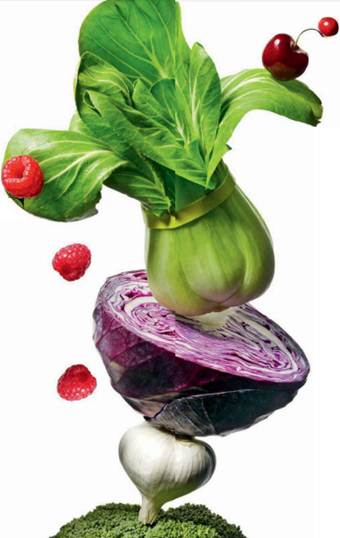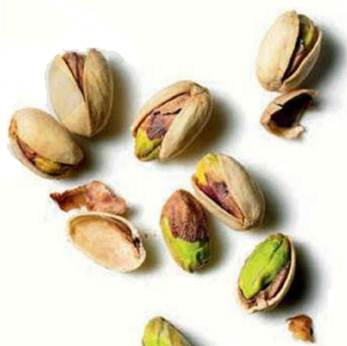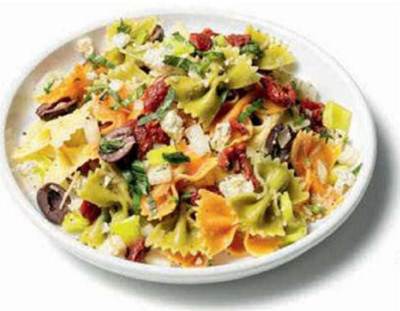So you think you know the truth about what’s
on your plate? Don’t be too sure. Helen Foster looks at 13 common food myths
and busts them wide open.

1. Turkey can help you sleep
It is true that turkey contains tryptophan,
supplements of which have been shown to help people fall asleep, “but the
amount of tryptophan required for this to happen if you tried to consume it via
food would be that found in about 18kg of turkey”, says Dr Michael Breus,
author of “The Sleep Doctor’s Diet Plan” (Rodale, $34.95). “A better tip would
be to drink tart cherry juice (the substance that has the most naturally
occurring melatonin, which makes you sleepy) and eat bananas, which are rich in
magnesium and potassium (both of which help with sleep). Or make a smoothie
containing them both.”
2. Coffee dehydrates you
Most natural therapists you meet will tell
you this, but studies form the University of Nebraska found coffee has no
diuretic effect in regular drinkers. The only time it does cause a small loss
of fluid is if you are what experts call “caffeine naive” – that is you never
drink it – and you suddenly have a mega dose (two to three cups) in quick
succession.
3. Blueberries are the fruit with the most antioxidants
The amount of antioxidants in a food is
measured by something called its ORAC (oxygen radical absorbance capacity)
value, and the ORAC value of 100g of prunes is more than twice that of the same
weight of blueberries. “Prunes really are under-rated super food,” says
Melbourne-based nutritionist Lola Berry. “They contain 27 different types of
antioxidants – plus they are powerhouse of minerals, containing potassium,
magnesium, copper and iron. Recent studies also suggest that eating prunes regularly
might even reduce your risk of developing osteoporosis.”

4. Vegetarians need to mix foods like rice and beans at every meal
It was suggested that if vegetarians didn’t
do this they wouldn’t get adequate protein as no one plant food contains all
eight essential amino acids, which meat does. “But this myth was based on
misunderstanding of nutrition and food composition and the faulty assumption
that a diet containing meat is ideal and that vegetarian diets should try and
emulate it,” says Amanda Benham, an accredited practicing dietitian in
Brisbane. “Vegetarians need not concern themselves with precise combinations of
amino acids. Eat a nutritious, mostly wholefood diet consisting of legumes, soy
products, nuts, seeds, wholegrain, vegetables and fruit and you’ll get plenty
of protein.”
5. Bigger is better for fruit and vegetables
Not when it comes to the nutrient content.
“The large a fruit or vegetable grows, the more water, sugar and simple
carbohydrates it usually contains. Higher levels of water and sugar dilute the
concentration of essential vitamins, minerals and nutrients,” says Dr Charles
Benbrook, chief scientist of the US-based The Organic Center. “Moreover,
smaller produce tends to taste better and also lasts longer when it’s stored
because of higher levels of natural antibiotics.” The effect is particularly
strong in strawberries, melons and other “high moisture” fruits and vegies, so
think quality not quantity when buying these.
6. Nuts are fattening
Actually, new research from the University of California has found that people who snacked on pistachios as part of a
low-kilojoule diet lost more weight than those eating pretzels. “Protein and
fiber in nuts help to satisfy your hunger. In addition, the fat content in nuts
help release satiety hormones in the digestive system with curb hunger,” says
Lisa Yates, dietitian at Nuts for Life. Add a handful or two of nuts to your
diet each day.

7. Eat carbs if you want to energize
A shock new finding from the UK’s University of Cambridge shows actually it’s protein that positively affects the brain cells
that keep us alert. The cells, called orexin cells, send out electrical signals
that make us more alert, but glucose from carbohydrates actually blocks this
activity – this is one reason, say scientists, why you feel sleepy after
high-carb meals. However, protein stops this blockage occurring.